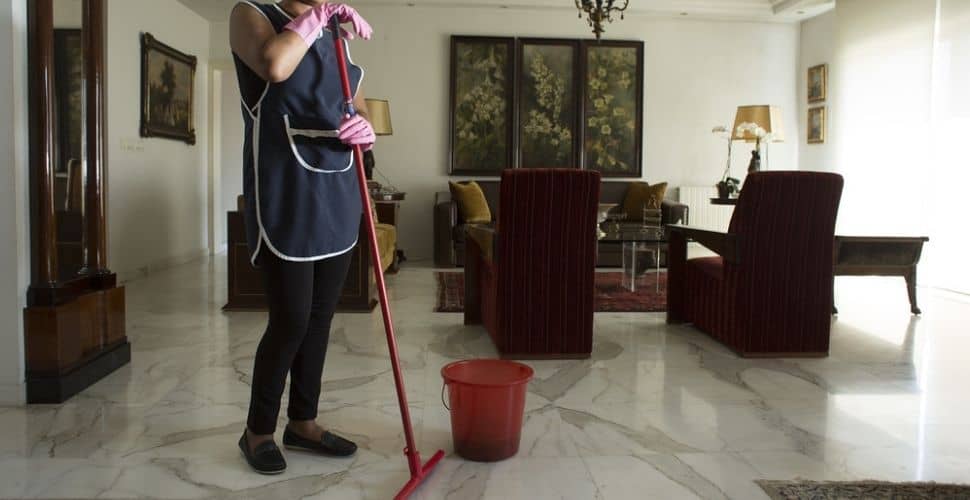“Nowadays, I make about $200 worth of lira that I can change for dollars. Before I would make maybe around $800 per month,” says Anna.
Anna, a domestic worker from Sri Lanka now works in Lebanon. Both countries are facing economic crises; the rapid decline in the value of the Lebanese Lira means she has little money to send back home, but she has few other options. “We don’t have any choice, I cannot leave this country. If I went to Sri Lanka, I would not earn anywhere near $200.”
Migrant domestic workers struggling
As Lebanon has fallen into crisis, migrant domestic workers have struggled to survive. Lebanese employers are known to have withheld their wages as they cannot afford to pay or repatriate domestic workers, causing what little savings workers had to dry up. Even in better economic times, Lebanon has long-retained its discriminatory kafala system, which severely limits the ability of domestic workers to report or escape abuse.
The Middle East Eye reports:
“Everywhere else they have rules to work eight hours per day, but not in this country. There are no medical services for migrant domestic workers and employers don’t often treat you very well.”
Anna is one of the estimated 250,000 migrant workers – many undocumented – in Lebanon working under the infamous “kafala” system, a structure of laws and practices described by human rights organisations as modern-day slavery.
These laws and practices restrict the rights of workers, binding their status in the country to their employers. Workers are also denied basic protections that others are entitled to under Lebanese labour law.
The case of Sri Lankan domestic workers
Lebanon began hiring migrant domestic workers back in the 1970s and 1980s, and Sri Lanka became one of the primary countries for recruitment. Over time the Sri Lankan government demanded better labor protections for their citizens, prompting recruitment agencies to search for cheaper labor sources and turn away from Sri Lanka.
It has meant that the Sri Lankan workforce that came decades ago is among the oldest migrant community in Lebanon. Still, they lack many basic protections according to Zeina Mezher from the International Labour Organisation (ILO): “Migrant domestic workers are not covered by social security. Their livelihood depends on their daily or monthly wages. But they can’t rely on a pension or health protection. When they stop working, a new struggle begins, especially at old age.”
Despite these exclusions in Lebanon, Sri Lankans lack economic opportunities at home, meaning the cycle of vulnerability and exploitation for migrant workers is likely to continue.
Anna’s daughter, who has finished her education in Sri Lanka and has no employment options at home, is planning to join her mother in Lebanon to become a domestic worker. Anna knows the struggle of 30 years in Lebanon and the reality of two countries in crisis: “I put all my money into food and education for my kids. One day I will probably leave without anything from this country.”
Add your name to the open letter calling on Lebanon’s Ministry of Labour to put an end to the kafala system and better protect migrant domestic workers from exploitation.







Freedom United is interested in hearing from our community and welcomes relevant, informed comments, advice, and insights that advance the conversation around our campaigns and advocacy. We value inclusivity and respect within our community. To be approved, your comments should be civil.
I urge you to end the kafala system which has resulted in the exploitation of domestic workers and a lack of any protection.